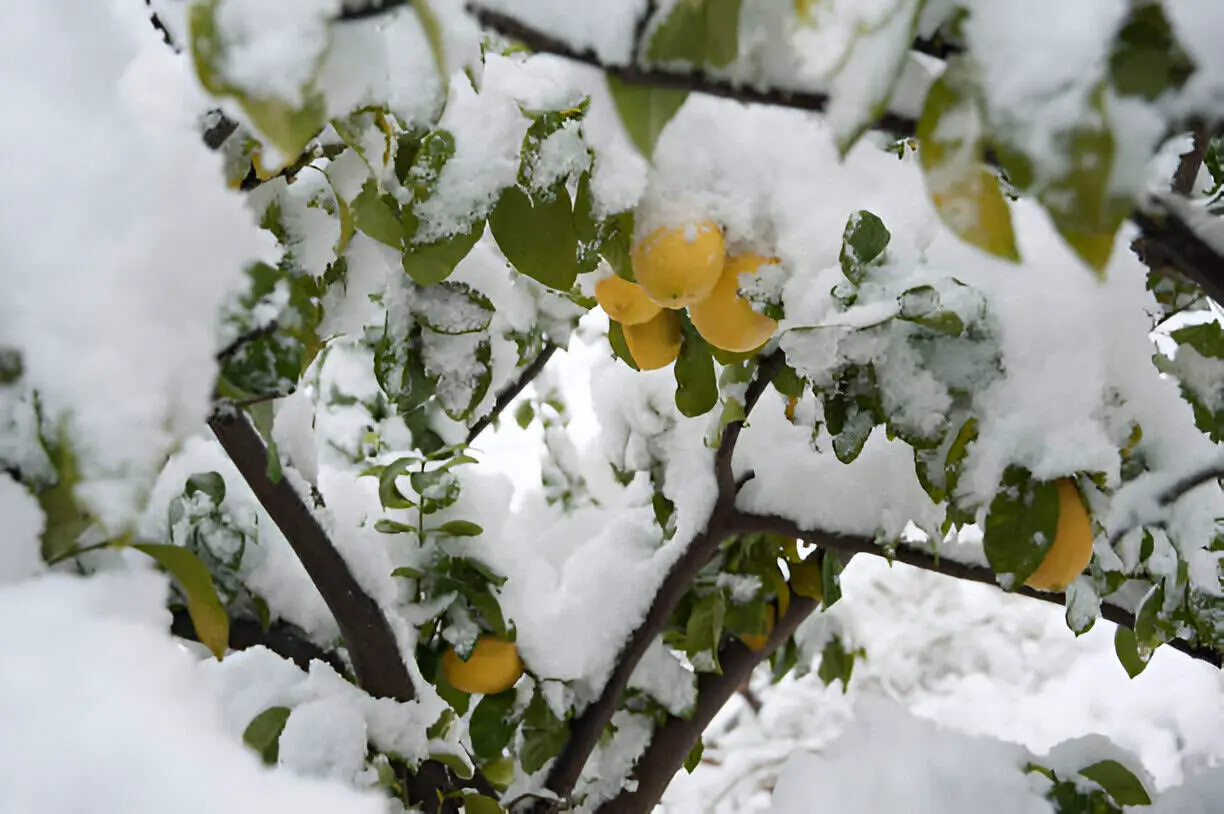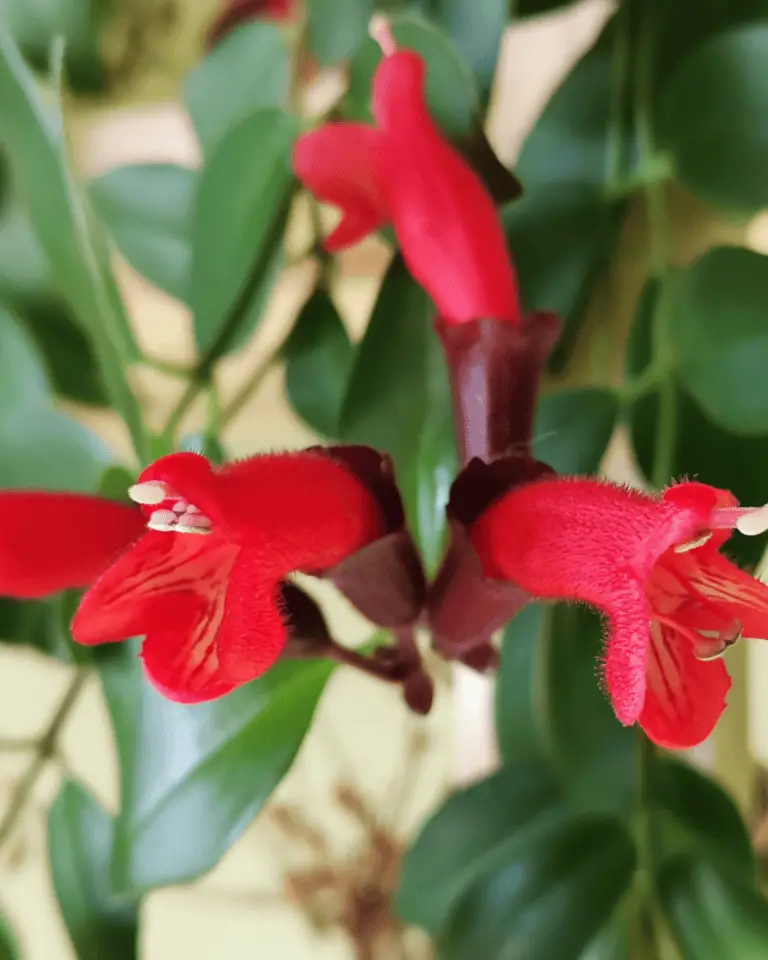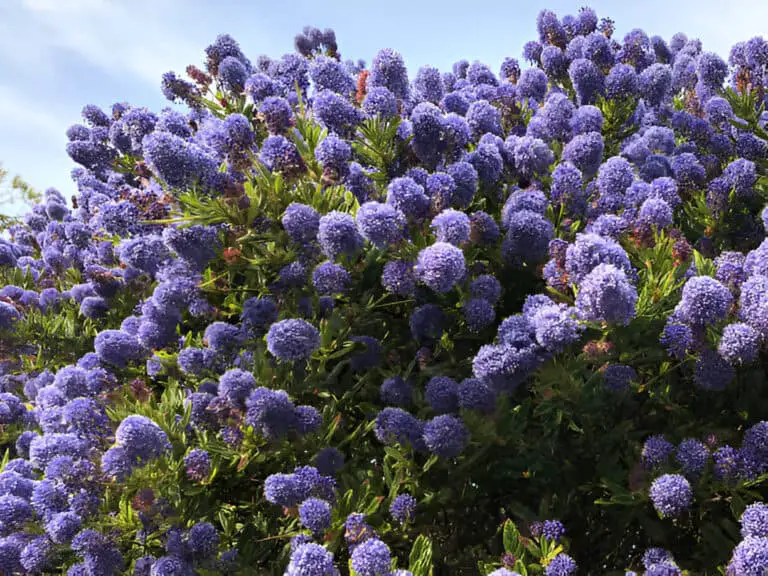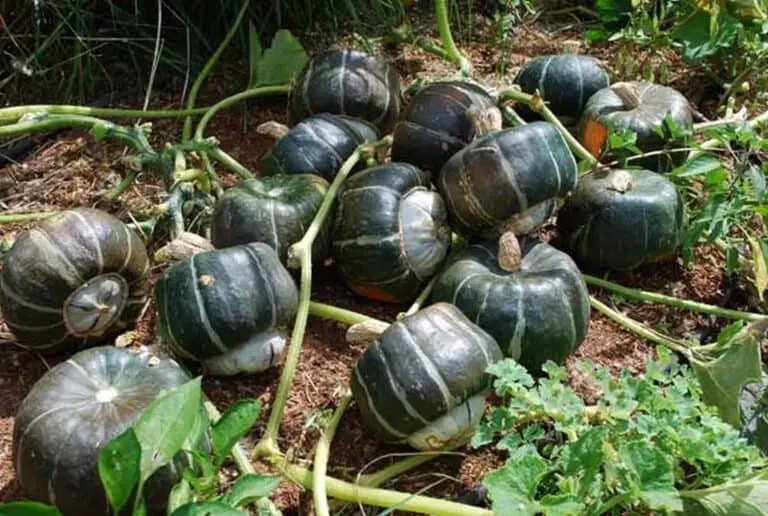Lemon Trees and Cold Weather: How Hardy Are They Really?

Imagine this: it’s a crisp winter morning, and you’re sipping a steaming cup of tea while gazing out at your garden. The lemon trees you lovingly tended through the warmer months stand proudly, their glossy leaves a stark contrast to the frosty landscape. But wait—can these sunny citrus wonders really withstand the chill?
The question of whether lemon trees can brave cold weather has been on my mind, and I’ve dug deep to uncover the truth. So, let’s solve the puzzle regarding lemon trees and their cold hardiness.
The Lemon Tree’s Warm-Weather Roots
Firstly, lemon trees, akin to sun-seekers on a tropical vacation, naturally flourish in warm climates. Originating from the heart of Asia, where the temperatures rarely dip below the comfort zone, lemon trees have adapted to a life of warmth and sunshine. In their native habitats, they bask in temperatures between 70 and 85°F (21 and 29°C), making them true connoisseurs of cozy climates.
In these warm environments, lemon trees grow with gusto, producing vibrant fruit and lush foliage. But when the thermometer starts to drop, these citrus darlings face a real challenge. Their resilience to cold weather is like a delicate dance—one that requires careful steps and attention.
| Read: How to Revive a Dying Meyer Lemon Tree |
The Cold Hardiness of Lemon Trees: What You Need to Know
Lemon trees aren’t exactly built for the arctic tundra. Here’s a breakdown of their cold hardiness and what you can do to help them weather the chill:
1. Temperature Tolerance
Lemon trees generally don’t take kindly to temperatures below 32°F (0°C). They’re not fans of frost, which can cause the leaves to scorch and the fruit to suffer. Most lemon varieties, like the Eureka and Lisbon, can tolerate brief dips to around 28°F (-2°C) if they’re well-established, but prolonged exposure to freezing temperatures can spell trouble.
- Frost Sensitivity: Lemon trees are sensitive to frost and can suffer from leaf drop and fruit damage.
- Short-Term Cold: They might endure short periods of cold if properly protected, but extended exposure can be detrimental.
2. Winter Protection Tips
If you live in an area where winter temperatures can drop, you’ll need to play guardian to your lemon trees. Here are some proven strategies to ensure the comfort of your citrus trees:
- Mulching: Add a thick layer of mulch around the base of the tree. Mulch acts like a blanket, insulating the roots and helping to regulate soil temperature.
- Frost Cloths: Use frost cloths or blankets to cover your lemon trees during cold snaps. These coverings help trap heat and shield the trees from frost.
- Container Gardening: If you’re growing lemon trees in pots, move them indoors or into a sheltered area during the coldest months. A sunny room or a greenhouse works wonders.
3. Cold Hardy Varieties
Not all lemon trees possess the same level of cold tolerance. Some varieties are a bit more robust and can handle colder temperatures better than others. Here’s a quick rundown:
- Improved Meyer Lemon: This variety is a bit more cold-tolerant than others, handling temperatures down to about 20°F (-6°C) with protection.
- Eureka Lemon: While not as cold-hardy as the Meyer, Eureka lemons can survive short bouts of cold with proper care.
- Lisbon Lemon: Similar to the Eureka, Lisbon lemons require extra protection during frosty weather.
A Table of Lemon Tree Cold Hardiness

Here’s a handy reference table summarizing the cold tolerance of different lemon tree varieties and their protection needs:
| Lemon Tree Variety | Cold Tolerance | Protection Needs |
| Improved Meyer | Down to 20°F (-6°C) | Light frost cloths, mulch, indoor shelter |
| Eureka | Down to 28°F (-2°C) | Frost cloths, mulch, occasional indoor protection |
| Lisbon | Down to 28°F (-2°C) | Frost cloths, mulch, occasional indoor protection |
| Check out: Is Blood and Bone Meal Good for Lemon Trees? |
Personal Experience: Lemon Trees and Winter
I’ve had my fair share of winters with lemon trees, and each season has taught me something new about their resilience. One particularly harsh winter, I learned the importance of frost protection the hard way. I had neglected to cover my young lemon trees, and the result was a sad sight—wilted leaves and a reduced fruit yield.
Since then, I’ve made it a point to use frost cloths and ensure that my lemon trees are well-mulched. I’ve also learned to bring potted lemon trees indoors to shield them from the cold. Seeing them bounce back with a flourish in the spring makes all the effort worth it.
Many gardeners have proved that growing lemon trees through winter isn’t just a dream — it’s possible with the right care. From small backyard growers to urban patio gardeners, success stories show how a bit of effort pays off when temperatures drop.
Some swear by frost blankets and well-timed pruning, while others rely on moving potted lemon trees indoors during harsh freezes. Sharing these lessons keeps the citrus-loving community thriving.
Here are a few strategies these gardeners use:
- Insulate pots with straw or burlap
- Use outdoor heaters for extreme cold
- Form local gardening groups for advice
| Gardener Story | Key Strategy | Result |
| Backyard Grower, USA | Frost cloths + mulch layering | Healthy fruit through winter |
| Patio Gardener, UK | Moved pots indoors at night | No frost damage, steady growth |
By learning from others, you’ll find winter lemon tree care isn’t so intimidating after all.
How to Monitor and Assess Cold Damage
Even with the best protection, lemon trees can sometimes show signs of cold stress. Here’s how to monitor and assess the damage:
- Leaf Drop: If you notice leaves turning yellow and falling off, it could be a sign of cold stress.
- Frost Scorch: Brown or blackened leaves indicate frost damage.
- Fruit Issues: Frost can cause fruit to drop prematurely or develop unsightly blemishes.
If you spot these signs, act quickly to provide additional protection and care. Pruning damaged branches and adjusting watering can help your lemon tree recover and prepare for the next growing season.
Conclusion: A Toast to Lemon Tree Resilience
Lemon trees may not be the most cold-hardy of the citrus family
, but with a bit of extra care and attention, you can help them weather the winter months. While lemon trees thrive in warm, sunny climates, you can still grow them successfully in colder regions by taking steps to protect them from frost and freezing temperatures.
From using frost cloths and mulch to selecting more cold-tolerant varieties, you have plenty of options to ensure your lemon trees not only survive but thrive. Even in the face of a chilly winter, these citrus wonders can bounce back and continue to produce their zesty, sun-kissed fruits.
Whether you’re a gardener in California enjoying a mild winter or a resident in Florida braving the occasional cold snap, remember that a little proactive care can make a significant difference. With the right protection, your lemon trees will be ready to welcome the warmth of spring and continue to add a splash of sunshine to your garden. Here’s to a fruitful winter and a vibrant spring ahead!






